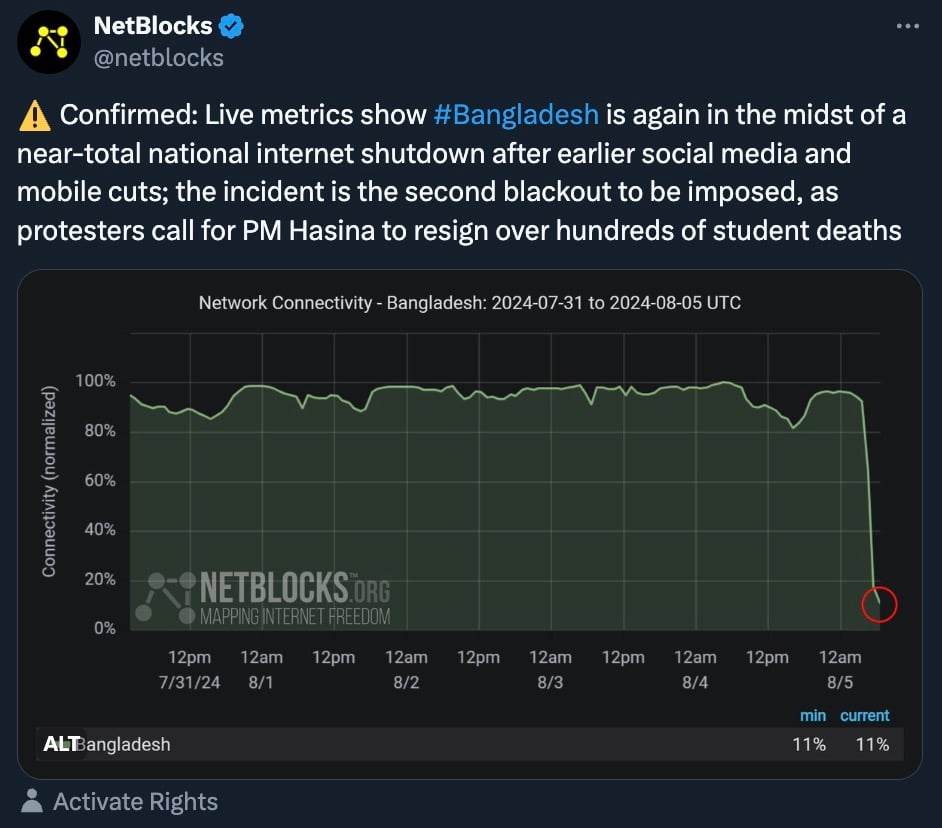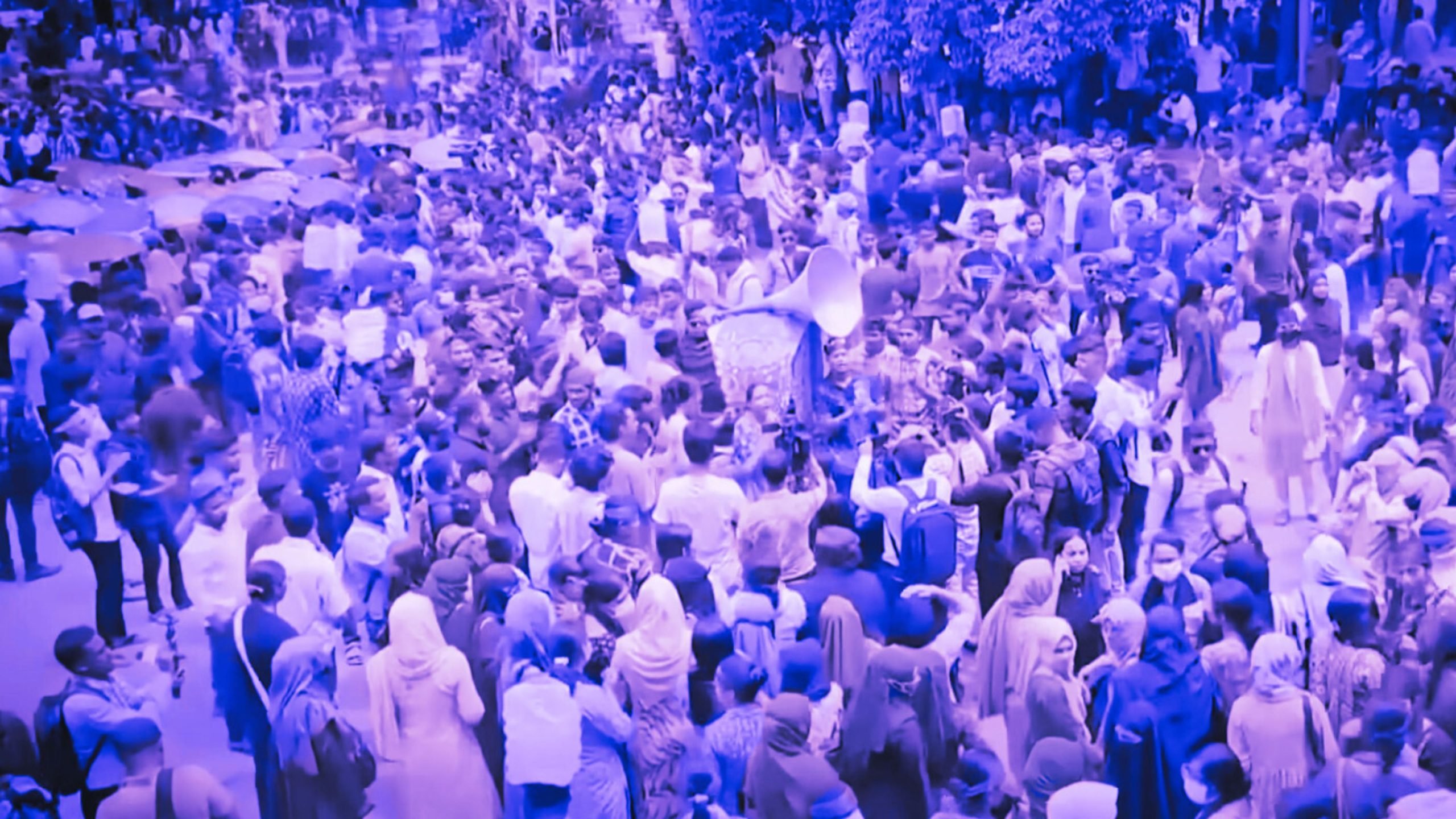The tried-and-tested method of controlling protests – various forms of internet blackouts imposed by governments – seems to have failed in Bangladesh, as reports on Monday say that PM Sheikh Hasina has resigned and left the country.
But before that happened, Bangladesh was thrown into waves of turmoil when initially peaceful student protests against the High Court reintroducing a government job quota system turned deadly, claiming more than 100 lives.
The latest outbreak of violence follows that of last month which resulted in about 200 deaths, while mobile internet was shut down for 11 days at that time.
On Sunday, before her reported resignation after 15 years in power, PM Hasina’s government ordered mobile internet to be shut down again as part of the measures meant to stop the protests and clashes. Other measures included a nationwide curfew and the closing of banks and other private and government offices.

The internet shutdown announced on Sunday was the second in three weeks, reports said, noting the high economic cost of this decision, as well as curfews – currently estimated at $10 billion.
The news about renewed mobile internet blackouts came from mobile phone operators, who said they were ordered to shut down 4G services. Also on Sunday, Facebook appeared to be blocked for some users.
Ahead of the students’ march announced last Friday, the government asked that Facebook and its Messenger be blocked by operators, but according to reports, this was not limited only to these platforms.
On the last day of July, Wednesday, a previous block of YouTube and Facebook was lifted. Earlier that month, broadband internet was also blocked, with this measure partially relaxed on July 23.
Five days later, mobile internet, as well as Facebook, TikTok, WhatsApp, and YouTube were made available again after 10 days.
But this to-and-fro did not yield the desired results, and so the government’s last-ditch effort to curb the violence by restricting communications came on Sunday.
Imposed internet outages are often used as a tool of censorship around the world, as governments try to push their policies, or control events. If Bangladesh is anything to go by, the only result is massive damage to the economy.













